GREEK AND ROMAN COMEDY
TRANSLATIONS AND INTERPRETATIONS OF FOUR REPRESENTATIVE PLAYS
EDITED BY SHAWN OBRYHIM
With contributions by
George Fredric Franko
Timothy J. Moore
Shawn OBryhim
S. Douglas Olson

UNIVERSITY OF TEXAS PRESS, AUSTIN
This book has been supported by an endowment dedicated to classics and the ancient world, funded by grants from the National Endowment for the Humanities and the Gladys Krieble Delmas Foundation, the James R. Dougherty, Jr. Foundation, and the Rachael and Ben Vaughan Foundation, and by gifts from Mark and Jo Ann Finley, Lucy Shoe Meritt, Anne Byrd Nalle, and other individual donors.
Copyright 2001 by the University of Texas Press
All rights reserved
Printed in the United States of America
First edition, 2001
Requests for permission to reproduce material from this work should be sent to Permissions, University of Texas Press, P.O. Box 7819, Austin, TX 78713-7819.
utpress.utexas.edu/index.php/rp-form
Library of Congress Cataloging-in-Publication Data
Library ebook ISBN: 978-0-292-79790-1
Individual ebook ISBN: 978-0-292-77882-5
DOI: 10.7560/760547
Greek and Roman comedy : translations and interpretations of four representative plays / edited by Shawn OBryhim ; with contributions by George Fredric Franko [et al.].1st ed.
p. cm.
Includes bibliographical references and index.
ISBN 0-292-76054-X (cloth : alk. paper) ISBN 0-292-76055-8 (pbk. : alk. paper)
1. Classical drama (Comedy)Translations into English. 2. Classical drama
(Comedy)History and criticism. I. OBryhim, Shawn, 1960 II. Franko,
George Fredric.
PA3629 .G74 2001
880 21dc09
00064879
CONTENTS
Every year several new translations of ancient tragedy appear. If not for the relatively few translations of ancient comedy, the general reader might think that the Greeks and Romans were humorless wrecks, obsessed with death and disaster. Nothing could be further from the truth. The ancients had a robust sense of humor that encompassed everything from politics to sexuality. The scarcity of new translations of ancient comedies may stem from any number of factors, including the erroneous belief that what is serious is by definition more worthwhile than what is humorous. It is my hope that this book will dispel this misconception.
Although this volume will be of interest to the general reader, it is meant primarily as a textbook for university students in basic courses on classical civilization, classical literature in translation, Great Books, English, and theater. I have taught several of these courses over the years and have been frustrated by the lack of a text that contains representative works of all extant comic playwrights and includes introductions to each author and essays on their plays. My only recourse has been to instruct my students to buy several different texts in order to cover these authors, which is very costly and inadequate for our needs. Hence the impetus for this book.
Four scholars of ancient comedy have contributed to this volume. Since every comic playwright whose work survives is represented here, the reader can form a fairly good picture of the types of comedy that were produced in Greece and Rome from the fifth to the second century B.C. It is not our intention to present the greatest hits of ancient comedy or those works that are most easily produced on stage. On the contrary, we chose these plays because they are representative of each authors corpus. The inclusion of Lysistrata, for example, would have been a mistake, because it is not representative of Aristophanes work and would give the reader an inaccurate picture of Aristophanic comedy. The substitution of Menanders Samia for Dyskolos would have required substantial additions by the translator because of its fragmentary state, thus making it more of an adaptation than a translation.
Some readers favor loose translations that border on adaptations. However, the creation of modernized versions of these plays runs contrary to the philosophy behind our translations: they should be smooth and readable, but should stay as close to the ideas and tone of the text as possible. As a result, they will be usable twenty years from now, when older adaptations filled with ephemeral slang will have been replaced by newer adaptations filled with ephemeral slang. And while all translations are, by nature, adaptations, very loose ones can often mislead those who wish to understand the culture in which the originals were written. In an attempt to avoid this, the translators have followed a few general guidelines in preparing their translations: avoid anachronisms; remain true to the original; translate all songs and significant changes of meter into verse; and include the bare minimum of stage directions. Stage directions are not found in the ancient manuscripts, so only exits, entrances, and a few directions that are absolutely necessary have been included here. Cues imposed by translators can act as a straitjacket upon imagination and creativity; their absence frees each reader to determine how each play might have taken shape on stage.
Since ancient comedies are sometimes inextricably bound to the time in which they were written, the best way to understand these translations is to read the elements of each section in the order in which they appear. The introduction includes information about the author and the category into which his comedy falls. A plot summary at the end of the introduction provides the background necessary to understand the events and characters discussed in the essay, which concentrates on an important theme in the play. After reading these sections, the reader will be in a better position to fully enjoy the translation and to appreciate the artistry of the author of the play. However, the format is very flexible, thus allowing the book to be used in several ways. The reader can concentrate on just a couple of authors, gain a general understanding of ancient comedy by reading all of the introductory chapters in order, or simply read the plays in isolation.
One word of caution: relatively few ancient comedies survive. There were other authors who probably wrote significantly differentand perhaps betterplays than the ones presented here, but their works have been lost. Therefore, to know the plays in this book is not to know all there is about ancient comedy. This is only an introduction to the genre. Some of the plays in this book are incomplete; sometimes substantial elements are missing, and other times just a few lines. In such cases, the translators have supplied what they deemed necessary to make the plays comprehensible to the modern reader. These additions are contained within brackets and in most cases are guesses based upon a few surviving words or letters. Other interpretations are possible and are encouraged.
SHAWN OBRYHIM, Arcadia, Indiana, January 24, 2000
The Development of Old Comedy
O FFICIAL performances of comedies began in Athens at the City Dionysia festival in 487 or 486 B.C. and at the Lenaia festival sometime around 442 B.C.
In addition, Aristotle notes that Athens neighbor Megara claimed that comedy had been invented there (1448a3032), and the occasional sneering references to unsophisticated Megarian humor in Aristophanes (e.g., Acharnians lines 73839, 822; Wasps 57) and elsewhere (Ecphantides fr. 3 K-A; Eupolis fr. 261 K-A) suggest that in the fifth century there was some awareness of the existence of another old local comic tradition. Perhaps more important, Aristotle twice associates the origin of comedy with the work of the Sicilian poet Epicharmos, who probably dates to the early fifth century, although Aristotle would place him a generation or so earlier (1448a3234, 1449a57). Epicharmos plays have been preserved only in unrevealing and generally very tiny fragments, but Aristotle reports that he and his even more obscure contemporary Phormis were the first to give comedy a plot (1449a56). What little survives of his plays suggests that they featured not only actors but a chorus, and makes clear that their author was fond of mythological parody. That verbal reports and eventually copies of plays by Epicharmos and perhaps also Phormis and others made their way to Athens seems likely, just as we know that a century or so later Athenian comedies were read and even performed in the cities of the Greek West.

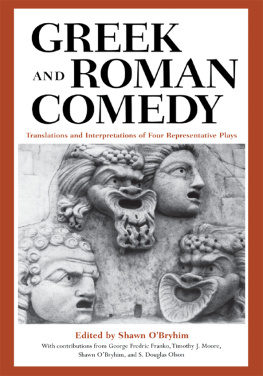
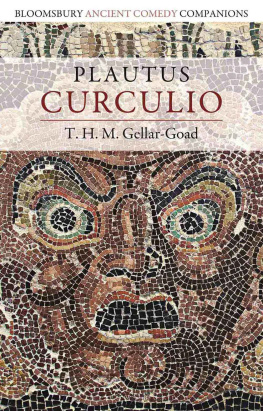
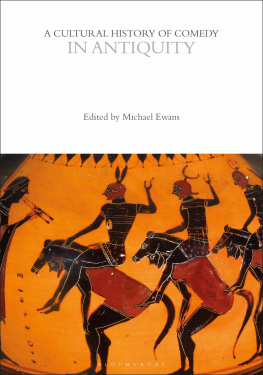



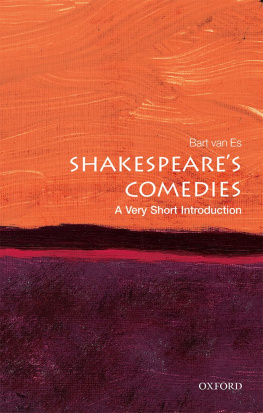
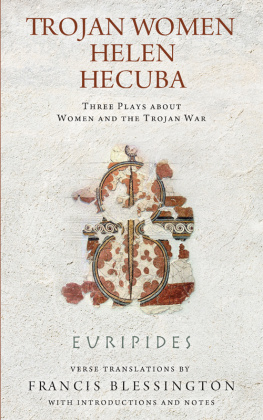

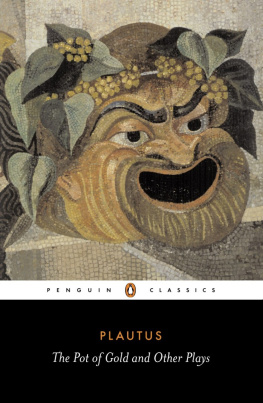
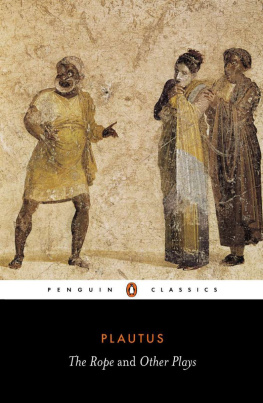
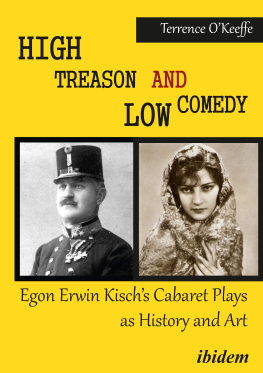
 UNIVERSITY OF TEXAS PRESS, AUSTIN
UNIVERSITY OF TEXAS PRESS, AUSTIN